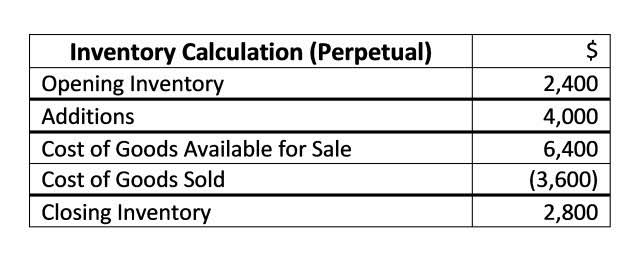What Is Bookkeeping? Definition, Tasks, Terms to Know

Bookkeepers play a crucial role in managing costs by categorizing and recording all expenses accurately. They utilize advanced software to track costs in real-time, allowing for a precise budget creation and adjustments. In advanced bookkeeping, a practitioner goes beyond basic transaction recording to implement strategies for detailed financial tracking and analysis. These strategies tie directly to an organization’s financial planning and strategic decision-making. These obligations must be managed efficiently to ensure a business can meet its short-term financial commitments without jeopardizing cash flow.
- Equity is the investment a business owner, and any other investors, have in the firm.
- Assets are what the company owns such as its inventory and accounts receivables.
- Beyond sales, other financial activities like expenses can differ widely, including rent, utilities, and wages.
- As a trusted Northern NJ CPA firm, we provide a wide range of customized, accurate accounting services.
- Once your bank accounts have been reconciled and any adjustments made in your recording tool of choice, you’ll want to close the month and print financial statements.
- Bookkeepers used to simply gather and quality-check the information from which accounts were prepared.
What Is Petty Cash Bookkeeping?

Now that you understand the basics, it’s time to put your knowledge into action. We’re firm believers in the Golden Rule, which is why editorial opinions are ours alone and have not been previously reviewed, approved, or endorsed by included advertisers. The Ascent, a Motley Fool service, does not cover all offers on the market. If you opt to not link your software with your bank, you will need to reconcile you accounts manually. Whichever way you do it, it’s important to complete the process on a regular basis.
What Are the Different Types of Accounting?
- Bookkeeping is the process of tracking and recording a business’s financial transactions.
- The chart of accounts lists every account the business needs and should have.
- In this final module for Course 1, you will gain an understanding of key accounting assumptions and principles and learn about the different types of accounting methods bookkeepers use.
- Both financial institutions and investors depend on reliable bookkeeping to foster trust and transparency in their relationships with businesses.
- Bookkeepers track all monetary exchanges, ensuring that each transaction, whether income or expenditure, is accurately entered into ledgers or accounting software.
Although accounts receivable, accounts payable and payroll do impact your books, some of these tasks can be managed by a person in your company other than your bookkeeper. Others, like payroll, can be outsourced to independent companies that specialize in the task. The timing of the accounting https://www.bookstime.com/ cycles can also depend on their cost-benefit analysis. With this step, debit equals credit, and the books are balanced for the following year. Since an accounting cycle is a periodic process, every financial activity is meticulously classified for an overall view of the financial performance.
- Bookkeepers regularly summarize this activity into reports that show how the business is doing.
- Bookkeepers manage a company’s financial accounts, ensuring they are accurate and easy to review.
- Overhauling all at once can be overwhelming and discouraging, so it’s best to take it slow and make meaningful and intentional shifts.
- It’s a great choice for anyone who needs a simple bookkeeping solution that will allow them to manage their expenses and income quickly.
- All in all, bookkeeping simply means tracking your business’s expenses and income.
Accountant vs. CPA vs. Tax Pro
- The general ledger acts as the repository of all financial transactions, organized by account.
- With well-managed bookkeeping, your business can closely monitor its financial capabilities and journey toward heightened profits, breakthrough growth, and deserved success.
- In this section, we’ll briefly review the roles of accountants vs. CPAs and tax professionals.
- As a sole proprietor, freelancer, or small business owner, you can choose between using a traditional hand-written ledger, spreadsheet software, or accounting software.
- Bookkeepers are responsible for recording, classifying, and organizing every financial transaction that is made through the course of business operations.
Accounting refers to the analysis, reporting and summarizing of the data that bookkeepers gather. Accounting reports give a picture of the financial performance of a business, and determine how much tax bookkeeping explained is owed. At the end of the accounting period, take the time to make adjustments to your entries. For example, you may have estimated certain invoices that are later solidified with an actual number.

Transactions and Financial Events
For this reason, there are several broad groups that most accountants can be grouped into. A certified public accountant (CPA) is a type of professional accountant with more training and experience than a typical accountant. In the U.S., licensed CPAs must have earned their designation from the American Institute of Certified Public Accountants (AICPA). An accounting degree requires deep education and training in tax and other laws with which businesses need to comply, plus finance and business management. While some bookkeepers may have developed similar skills, that level of training isn’t required to be called a bookkeeper. An Italian mathematician and Francisan monk, Pacioli wrote the first popular description of the double-entry system and the use of various bookkeeping tools such as journals and ledgers.

What is Bookkeeping? Understanding the Basics of Financial Record-Keeping

